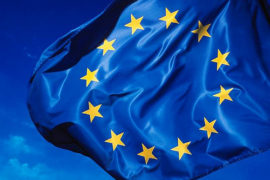GET FARAGE!: Here we go again…almost exactly a year ago, during the general election, Evan Davis slammed into Nigel Farage, interrupting him no fewer than 50 times and hardly letting him utter a single word about policy. Today, it was Nick Robinson’s turn on Today. Ostensibly this was an interview about Ukip’s chances in the various May elections, but Robinson had another agenda, which at core, was to work flat out was to show the party was hopeless, divided and clueless. First off, what was the point of voting Ukip at all in these elections, because their relevance was only to the EU referendum? Next – a BBC constant ever since Nigel Farage entered the national stage – he was a ‘curious’ one-man band. Then, the party he is leading is a ‘sack of fighting ferrets’. The next point was a new one: Farage ‘can’t deal with competition’ because his rival for leadership, Suzanne Evans had been suspended. Whether or not she had behaved badly became a central point of the interview. Next were figures from the OECD, which, said Robinson, showed that Brexit would cost people the equivalent of one month’s salary. Farage tried to answer, but Robinson was having none of it. Before he could explain why the figures did not add up, Robinson introduced another challenge. He wanted ‘a list of the organisations that agree with you’. NF tried to say what counted was consumers and markets rather than the big organisations, but Robinson slammed him again to demand that he name ’an organisation of economic forecasters…who agrees with your view that you’d be better off outside the EU’. Farage said that Patrick Minford, the professor of economics at Cardiff University (where he was) said that the average British family would be better off by £40 a week. That, however, in Robinson’s book, did not count because he was not an international body. Farage said the that international bodies did not have figures working for them that traded manufactured goods, and that outside or inside the European Union, the UK would continue trading. Nick Robinson asked if the trading relationship would be like that of Albania’s as mentioned by Michael Gove. Farage said what Gove had said about Albania had been spun. Robinson asked what country he would like to base the UK’s relationship on. Farage said that if small countries like Norway and Switzerland could reach their own deals, the UK could arrive at a bespoke deal. Robinson then gave him ten seconds to name a country ‘that you would like to be like’. Farage repeated that the UK could forge its own deal. Robinson responded:
‘Er, I think the answer’s no you can’t name a country’.
All these issues were legitimate lines of questioning. But the point here was the tone: Robinson from the outside was massively aggressive and on a mission to push Farage as hard as he could. He gave him very little space to answer and in every case, crashed in with another reason why his answers were unsatisfactory. The contrast between that approach, and, for example, Huw Edward’s handling on Sunday of his interview with President Obama could not be greater, even allowing for the fact that the latter is President of the USA. An important perspective here is that the BBC has form. Nick Robinson’s belligerent approach to Farage was yet another example in a long line of similar encounters. In nearly all of them the formula has been the same, especially the idea that Ukip is a one-trick pony and grossly incompetent. This was ostensibly an interview about the party’s prospects in the forthcoming UK elections, but it was nothing of the sort. It was an unsubtle, disproportionately hostile, attempt to discredit the Brexit case and to yet again to undermine both Farage and Ukip.






